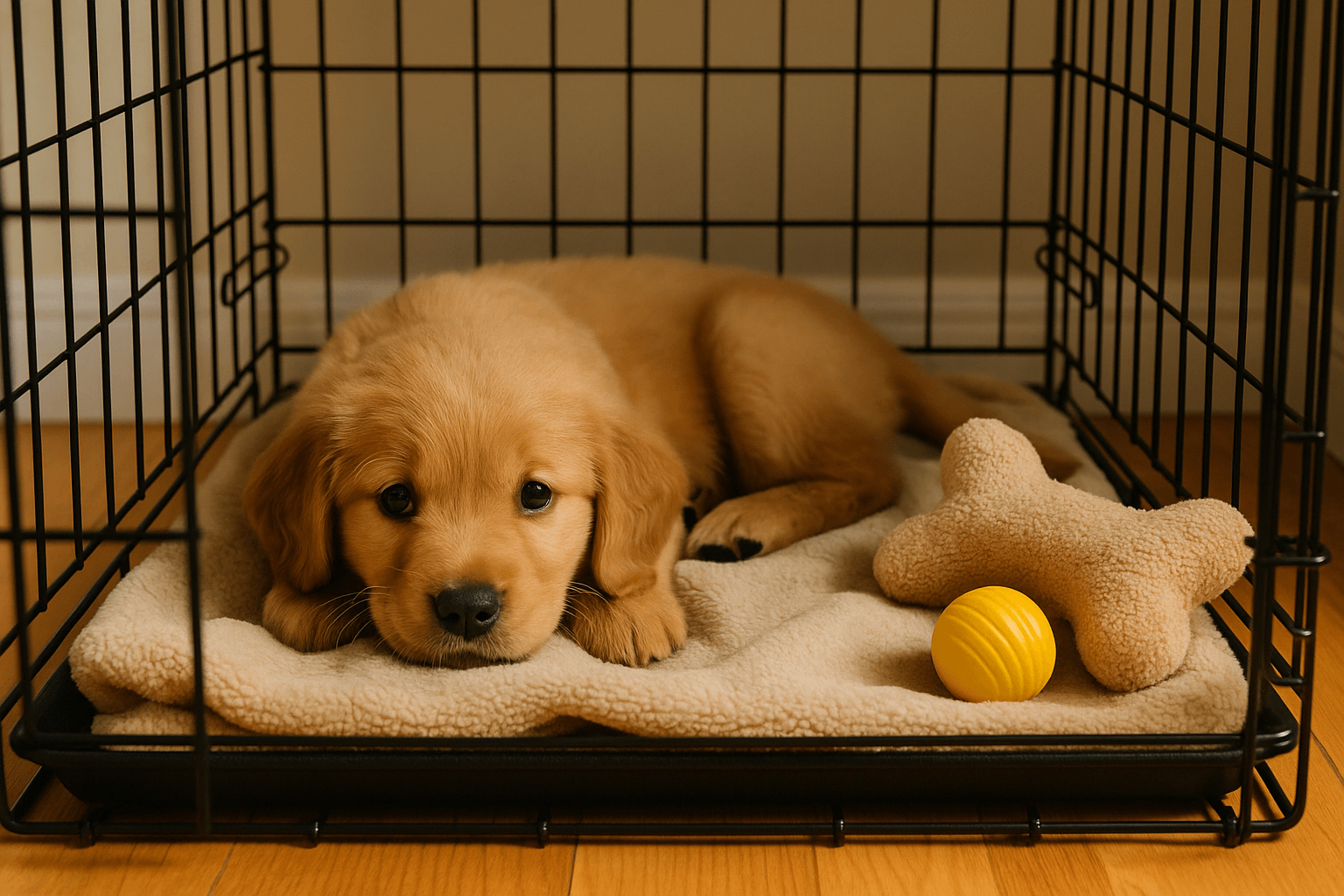Can Dogs Get Jealous? Understanding Dog Emotions
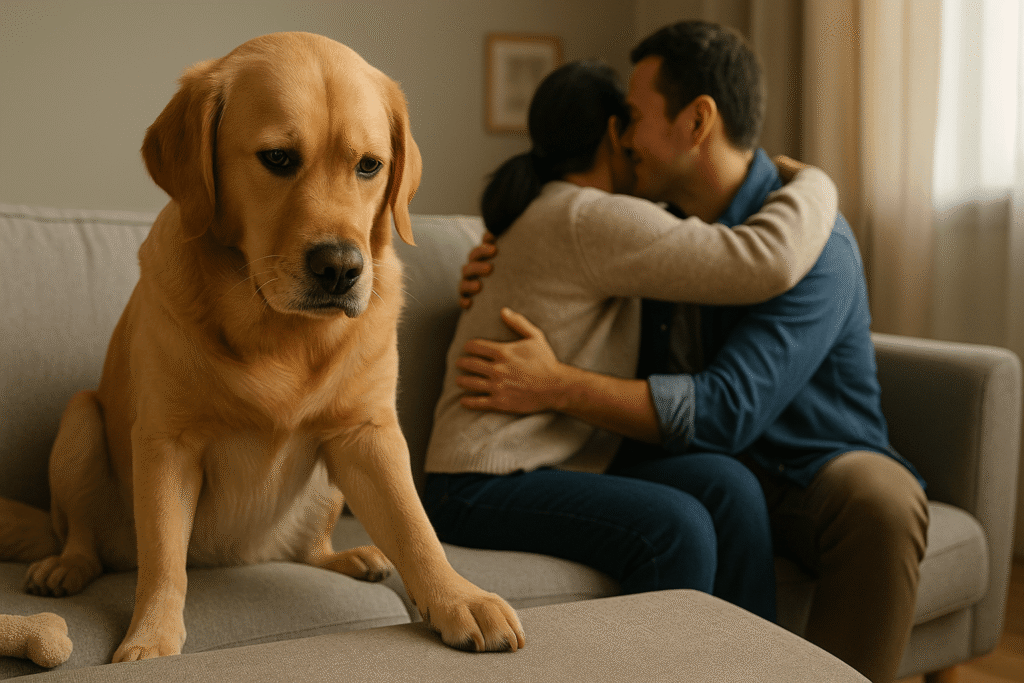
Dogs are known for their loyalty, affection, and desire to be close to their humans. But what happens when your attention shifts—say, to a new pet, a baby, or another person? Many pet owners notice their dogs acting out or demanding more affection. Could this be jealousy?
Recent studies suggest the answer is yes: dogs do show behaviors that closely resemble jealousy in humans. Understanding these emotions can help you build a healthier bond with your dog and prevent conflict in multi-pet or changing households.
Do Dogs Experience Jealousy Like Humans?
Dogs may not experience complex jealousy in the same way humans do, but research shows they can display behaviors that look and feel a lot like it. These include attention-seeking, pushing between you and another pet or person, barking, or even destructive actions.
In one study, researchers observed that dogs reacted strongly when their owners gave affection to a stuffed dog, suggesting they felt threatened by the perceived rival. The dogs nudged, barked, or tried to insert themselves between the owner and the object—classic signs of emotional insecurity.
Common Situations That Trigger Jealousy
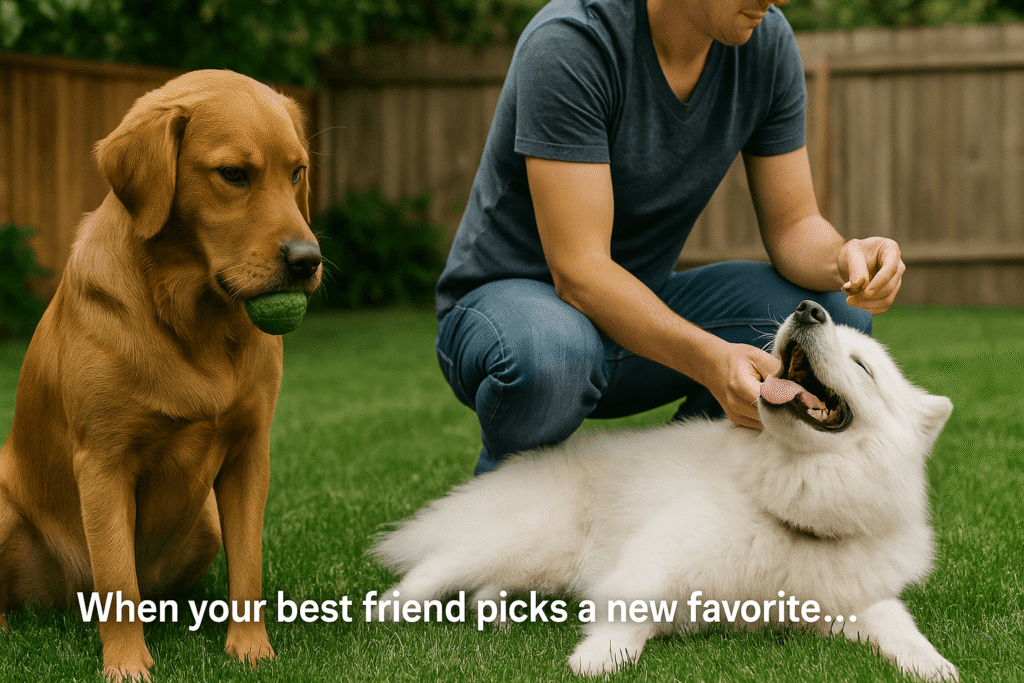
Jealousy in dogs often arises when their bond with their owner feels threatened. Some typical triggers include:
- Introducing a new puppy, dog, or cat into the home
- Paying attention to a baby or young child
- Giving affection to other people or pets in the household
- Shifts in routine that reduce time spent with your dog
- Rewarding another animal or person during training or playtime
These moments can create uncertainty in your dog, especially if they feel ignored or excluded.
How to Tell If Your Dog Is Jealous
Look for these signs if you suspect your dog is feeling jealous:
- Interrupting when you pet or talk to another pet or person
- Pawing, nudging, or inserting themselves between you and the perceived rival
- Whining, barking, or growling without a clear reason
- Acting out by chewing furniture or having accidents indoors
- Becoming clingy or following you more than usual
- Showing signs of depression or withdrawal
These behaviors usually point to insecurity or confusion, not aggression or dominance.
How to Help a Jealous Dog
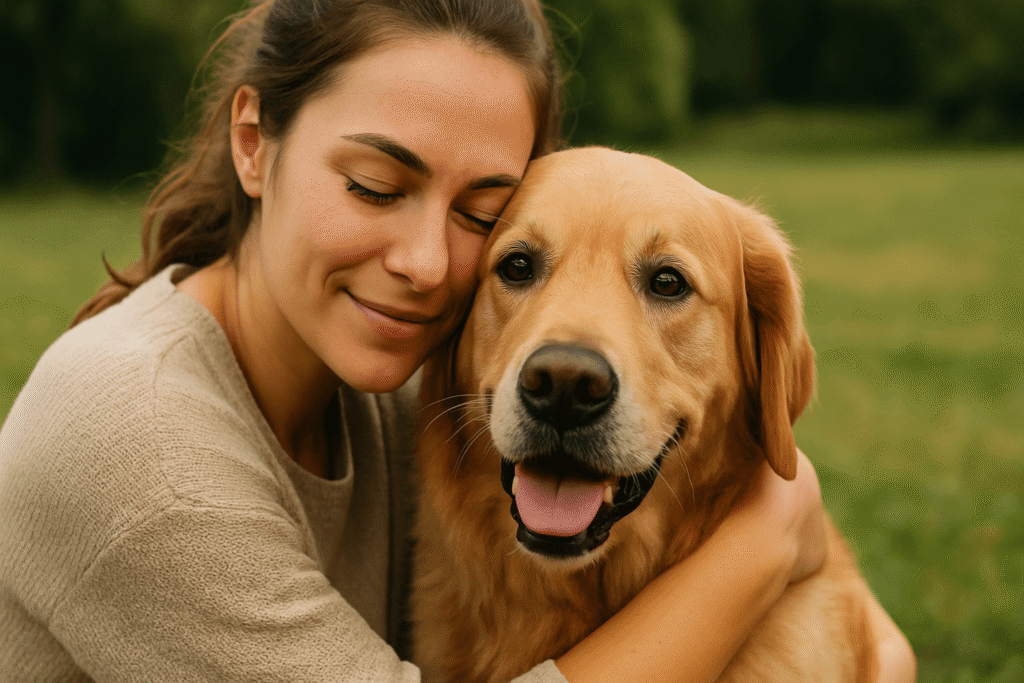
Helping your dog feel secure again is key. Here are some effective ways to reduce jealousy and build trust:
Give Equal Attention
Make sure your dog still gets one-on-one time, especially after a new addition like a pet or baby. Stick to familiar routines and avoid making sudden shifts in attention.
Use Positive Reinforcement
Reward calm behavior when your dog interacts politely with others. Avoid scolding them for jealousy; instead, praise them when they stay relaxed and respectful.
Create Clear Boundaries
Teach your dog to respect personal space using commands like “wait” or “stay.” This helps reduce pushy behaviors during moments when you’re focused on someone else.
Practice Group Activities
Engage your dog in activities that involve everyone—family members, new pets, or babies. This helps them associate good things with shared time, not competition.
Consult a Trainer If Needed
If jealousy escalates to growling or possessive behavior, a professional dog trainer or behaviorist can help guide you with personalized strategies.
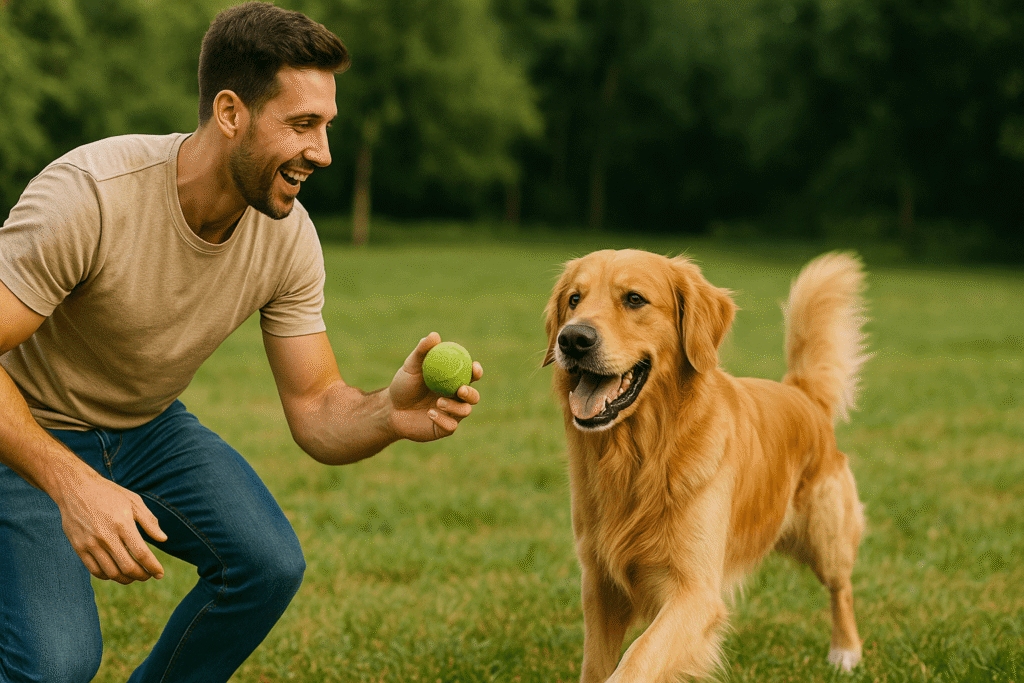
Final Thoughts
Dogs are emotionally intelligent animals capable of forming deep bonds—and, at times, experiencing jealousy. Whether it’s a new pet, a baby, or a shift in your daily routine, changes can spark emotional responses in your dog that mirror those in people. By understanding the signs and responding with patience and positive reinforcement, you can help your dog feel safe, loved, and secure in your changing household.
